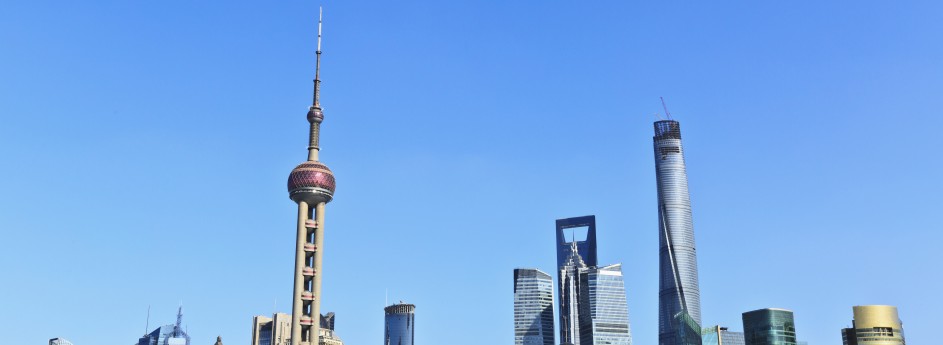Are Uighur Militants Seduced by Jihadist Ideology?
This International Business Times article is both right and wrong about the inroads that radical jihadists are making in Xinjiang as a number of in-depth Chinese media exposes readily indicate.
http://www.ibtimes.com/al-qaeda-wants-xinjiang-islamic-caliphate-uighur-leaders-say-no-1710279
It’s right on the mark regarding Al Qaeda’s propaganda and disinformation offensive on Xinjiang portraying the central government’s policies as wholly oppressive against Islam and the Uighurs:
“The first issue of Resurgence, an English-language magazine produced by a media wing of al Qaeda, As-Sahab, includes an article about the Islamic community in East Turkistan, as they call the territory the Chinese call Xinjiang, titled “Did You Know? 10 Facts About East Turkistan.” As pointed out by the South China Morning Post of Hong Kong, the article features many inaccuracies about the area and China’s rule over it to further their belief that the Muslim religion and its followers are threatened by Han Chinese. For example, it claims that teaching the Quran is illegal in China, when in fact China recognizes Islam as one of the country’s five official religions. Though restrictions have been put on government officials practicing Islam, the country does not have a blanket ban on practicing the religion…”
But, the article is way off when it cites the president of the US based Uyghur American Association who suggests that extremist jihadi literature has had little impact in Xinjiang. In fact, over the recent past, a number of perpetrators of mass violence influenced by extremist propaganda have launched indiscriminate attacks, sometimes fairly large scale, on innocent civilians, Uighur, Han, Hui, and other ethnic minorities included, along with police constabularies in several Xinjiang counties and cities, plus a farmer’s market in provincial capital Urumqi and at the Kunming (capital of southwest Yunnan province) Train Station.
A small minority of disgruntled Uighur youth, especially hailing from the poverty-stricken southwestern Xinjiang, have been targeted by Al Qaeda and other extremist groups for indoctrination and recruitment. Radical Uighurs have been captured by US and allied forces in Afghanistan and sent to Guantanamo (then later released to third countries) and have travelled to as far as Indonesia for terrorist training (see a previous post). Most ominous is that Chinese nationals recently caught by Iraqi forces point to a number of Chinese youths, Uighur or otherwise, joining ISIS and other radical Islamist groups. The Chinese Foreign Ministry estimates that at least a hundred Chinese nationals are now fighting for ISIS.
Tibetan Nomads Have Choice in Settlement Program: NPR
In contrast to the pervasively negative and distorted portrayals by Tibetan independence support groups of China’s Tibetan and other ethnic nomad settlement programs as oppressive, coercive, and damaging to the traditional nomadic way of life, here is a fairly balanced report by a veteran NPR reporter who visited a family of former Tibetan nomads in Yushu, Qinghai Province.
The government provided the family with a comfortable apartment but the father has decided to go back to his nomadic life. So, it’s not a matter of settlement in towns or else. Tibetan families have the choice of putting one foot in towns and the other in their traditional ranges.
http://www.npr.org/blogs/parallels/2014/10/14/356012331/chinas-nomads-are-caught-between-two-worlds
Canada Should Sign an Extradition Treaty With China
A ‘coup’ of sorts for China’s efforts to nab corrupt officials who have fled overseas with US$ thousands of millions in ill-gotten gains happened today in Australia (reported by the Sydney Morning Herald (SMH)). The Australian Federal Police (AFP) has agreed to extradite and seize assets of corrupt officials in joint operations with their Chinese counterparts. China has made immense efforts over the past few years to arrest suspects of economic crime residing in Western countries that are often reluctant to hand them over due to suspicions about the Chinese judicial system. The US, Canada, and Australia (along with Singapore, the Netherlands, and others) are regarded as favourite havens for Chinese criminals with Canada called a “paradise for Chinese fugitives”.
Done in conjunction with China’s ‘Fox Hunt’ campaign, part of anti-corruption czar Wang Qishan’s strategy to ferret out corrupt officials resident abroad, the AFP has consented to a priority list of economic criminals, either naturalized citizens or permanent residents of Australia, who have over time laundered funds under the guise of legitimate investment or as business migrants. Describing many of their dealings as “very carefully planned”, Commander Bruce Hill, the AFP’s point man in the operation, linked many to the ‘naked official’ phenomenon where officials send their spouses and children abroad mostly as a way of shifting assets offshore. Chinese experts estimate there are some 1.2 million such officials who have transferred at least hundreds of US$ billions overseas since the late 1990s.
China has extradition treaties with 38 countries but none with the US, Australia, or Canada (the treaty with Australia has yet to be ratified). Short of a formal treaty, the Australian attorney general can consider extradition requests under the UN Convention against Corruption, to which both Australia and China are signatories. Chinese judicial authorities have disclosed that over 150 economic criminals, mostly corrupt officials, are currently resident in the US but numbers of fugitives living in other countries remains unclear. The Xinhua News Agency reported that since 2008, some 730 suspects from 12 countries have been extradited on charges of embezzlement, corruption, money laundering, and other economic crimes.
Last year, Canada and China carried out lengthy negotiations on an agreement to share assets that Chinese economic criminals were able to illegally funnel to Canada but Canadian Ambassador to China Guy Saint-Jacques made clear in an interview with the China Daily that while major cases are discussed annually between the two police authorities, there are no plans to conclude a bilateral extradition treaty! In 2010, Chinese police signed a cooperation memorandum with their Canadian complements to fight cross border crime and in the summer of 2011, Lai Changxing, for over a decade China’s most-wanted fugitive, was finally extradited back to China after exhausting all avenues of legal defense in Canada.
In the absence of a treaty, the Lai Changxing case was nonetheless a major milestone in extradition between the two countries. All in all, it took the Canadian judicial system 12 years to release Lai after his initial application for refugee status in 1999 claiming the charges of corruption lodged against him were politically motivated. As a condition of his transfer, the Chinese authorities had to issue a diplomatic statement that he would not be tortured or executed and that Canadian officials could have access to him although not necessarily to attend closed trial hearings. A year later, Lai was found guilty of fraud and sentenced to life imprisonment by Chinese courts.
Given the successful extradition and prosecution of criminals such as Lai showing China’s commitment to combating judicial abuse, it is incomprehensible why the Canadian government is still not willing to put discussions toward a formal treaty on the front burners. Earlier this year, the Harper government decided to scrap a 28 year-old investment immigration program to attract wealthy foreigners. Most of the applications under the program came from well-healed Chinese mainlanders, about 45,000 of them, that were thus abruptly cancelled. At the same time, however, the Australians are ramping up their own Significant Investor Visa scheme, 90% of the applications for which come from mainland China. A new “premium” investor program was introduced this month under which applicants investing A$15 million could obtain permanent residency status after just one year. Aware of potential pitfalls, the government emphasized that it would “strengthen integrity measures” to ensure that the new program would not be misused.
With key countries dragging their feet or simply refusing to sign and/or ratify extradition treaties with China while introducing plans to entice wealthy Chinese, you can be sure the flow of corrupt officials to those ‘safe harbours’ will only continue if not rise, especially given the increasingly stringent anti-corruption environment back home.
So, Canada, do your part to better deter corrupt Chinese officials.



